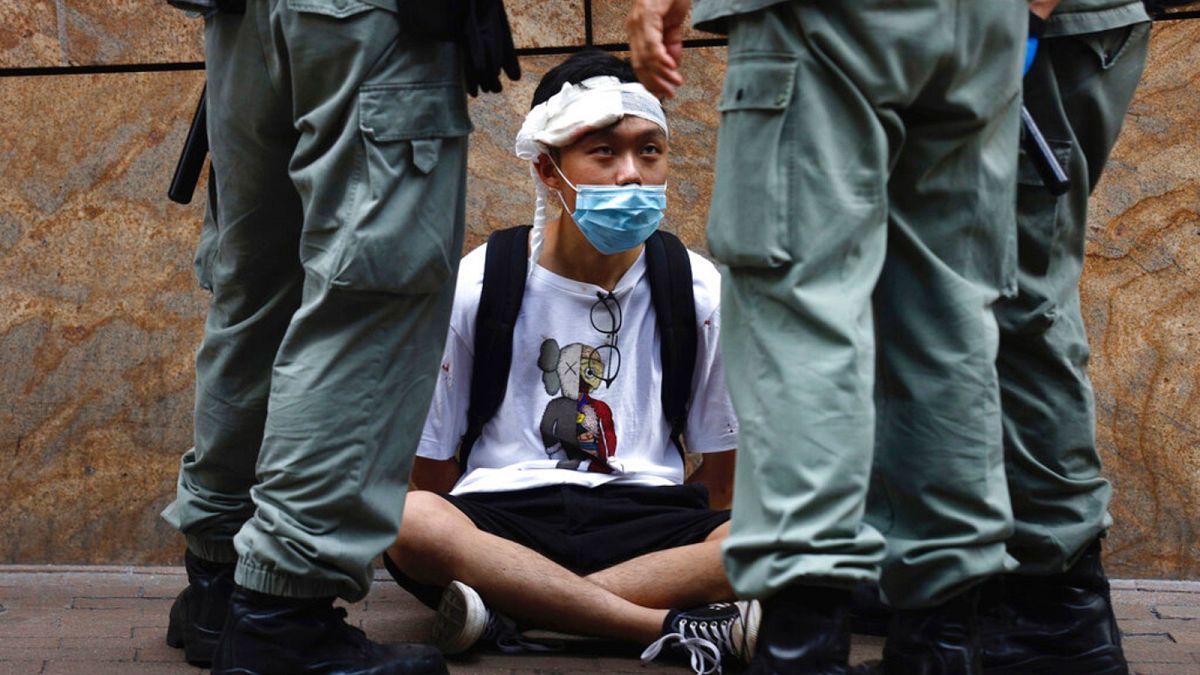Hong Kong's legislature has outlawed insulting China's national anthem just as activists planned to commemorate Beijing's 1989 Tiananmen Square Massacre despite a ban.
Hong Kong has passed a controversial bill making it illegal to insult China's national anthem, fanning fears that Beijing is tightening its grip on the semi-autonomous city.
A protest by opposition lawmakers earlier forced Thursday's session to be paused. One of them – holding a sign that read “a murderous regime stinks for ten thousand years” – even dropped in the chamber a pot of pungent liquid, hidden inside a Chinese paper lantern.
Critics see the law as an infringement on freedom of expression and the greater rights that residents of Hong Kong have compared to mainland China. The pro-Beijing majority in the Legislative Council argues the law is necessary for Hong Kong citizens to show appropriate respect for the anthem.
Offences, which include altering the Chinese anthem's lyrics, or singing 'in a disrespectful way', could be fined up to 50,000 Hong Kong dollars (5,700 euros) and handed three years in jail.
"It's part of a wider cracking down on the rights and freedoms of Hong Kong citizens," Robert Weatherley, a lecturer in Chinese Politics at Cambridge University, told Euronews in a live interview.
Hong Kong, a former British colony, returned to Chinese rule in 1997, under a "One Country, Two Systems" agreement that guarantees the city a high degree of autonomy until 2047.
The contentious law comes as China approved a decision last week to enact a national security law for Hong Kong that could see Chinese security agents posted in the city. Beijing made the move after months of protests that rocked Hong Kong last year.
Beijing began pushing for an anthem law after Hong Kong football fans jeered the national anthem at international matches in 2015. Last September, thousands of fans also booed loudly and turned their backs when the anthem was played at a World Cup qualifier match against Iran. FIFA later fined the Hong Kong Football Association over the incident.
Tiananmen vigil cancelled
Voting on the Chinese national anthem law coincided with the anniversary of Beijing's bloody crackdown on pro-democracy protests in Tiananmen Square in 1989, which remains a taboo subject on the mainland.
In the past, Hong Kong has marked the day with sombre commemorations, but even those are now being restricted. An annual candlelight vigil traditionally held in the city’s Victoria Park has been cancelled this year.
The authorities have cited the risk of COVID-19 infection but critics say coronavirus restrictions are being used as a pretext to crack down on freedom of speech and assembly.
"The ban comes amid an alarming acceleration of attacks on the autonomy of Hong Kong and the undermining of the rights and freedoms of the Hong Kong people guaranteed under Hong Kong and international law'' Sharon Hom, executive director of Human Rights in China, said in a statement."
Hundreds, possibly thousands of people were killed when tanks and troops assaulted the center of Beijing on the night of June 3-4, 1989 to break up weeks of student-led protests seen as posing a threat to authoritarian Communist Party rule.
The Hong Kong Alliance in Support of Patriotic and Democratic Movements of China, which organises the annual vigil, has called on people around the city to light candles at 8 p.m. local time (1200 GMT) and plans to livestream the commemorations on its website www.64live.org.
Alliance Chairman Lee Cheuk-yan said protesters still planned to gather at the park to mourn victims of the massacre and show their support for the democratic cause in China. It wasn't clear what form the activity would take or how many would attend. The entrance to the park was blocked by police barriers on Thursday.


